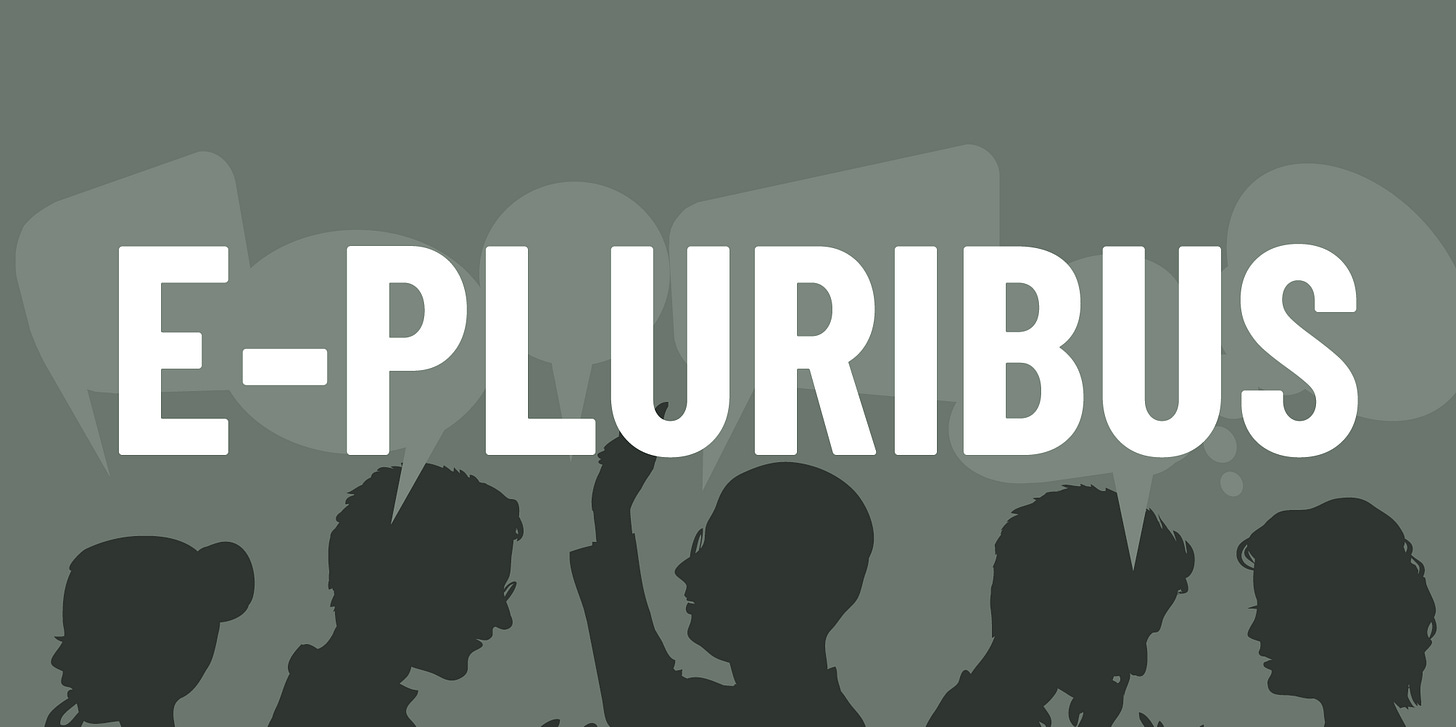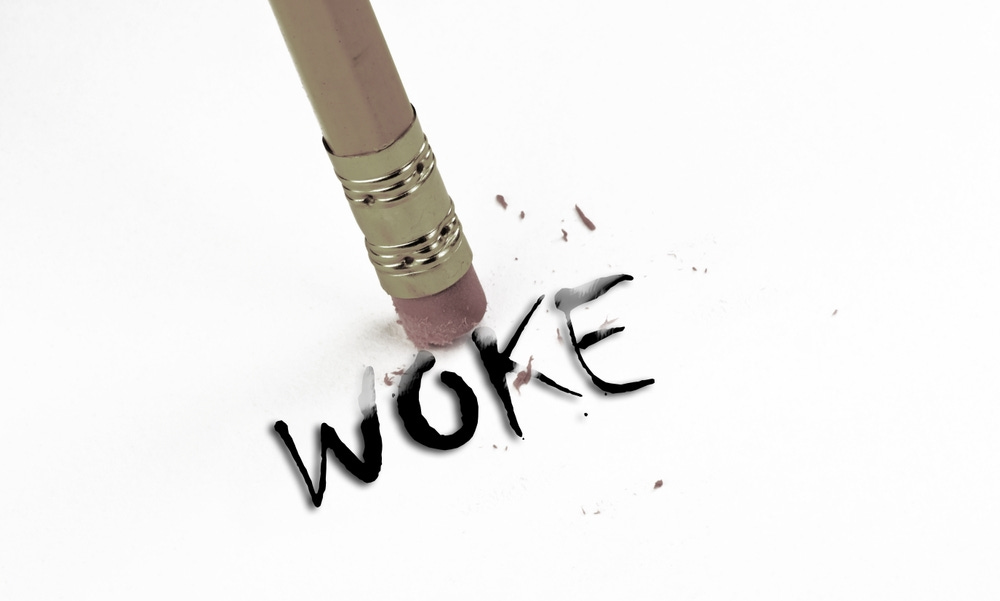E-Pluribus | April 5, 2023
DEIing in Maryfornia; the political gift of wokeness; and how the Left "woke" up.
A round-up of the latest and best writing and musings on the rise of illiberalism in the public discourse:
Dave Seminara: Out-Woking California
If California doesn’t watch out, Dave Seminara at City Journal says it might find its “left coast” progressive dominance challenged by an upstart on the right side of the country: Maryland. Seminara details a new Maryland law that places onerous Diversity, Equity and Inclusion requirements on companies who want to do significant business with the state or even receive certain tax credits.
Maryland’s corporate diversity legislation, HB 1210, requires businesses in the state to demonstrate diversity in their board or executive leadership or support for “underrepresented communities” in their mission to qualify for state grants, tax credits, or contracts worth more than $1 million. . .
Craig Williams, a CPA in Carroll County, Maryland, says that the state “snuck in” the new DEI reporting requirement along with the required Maryland annual report for companies. Williams says that many of his clients think the state shouldn’t tell them how to promote diversity. “Using legislation to mandate DEI crosses a line,” he said. “It pits one race against another.”
The law requires Maryland to maintain a state equity report that summarizes diversity data for each company and catalogs their “support of underrepresented communities in the entity’s mission.” To date, the state has hired just one person to process the hundreds of thousands of paper-copy DEI reports that will soon flood its offices. The Maryland General Assembly estimates that the new law will cost at least $686,200 in fiscal year 2023 and “significantly” more thereafter.
On the new “corporate diversity addendum” report, firms must check boxes to indicate if they have members of various minority communities on their board or executive leadership team. And on 12 DEI-related statements, they must check a box (or not) to determine compliance. For example, one statement asks companies to confirm if they have a “supplier diversity policy.” Another asks if the company “measures the percentage of contract dollars awarded to businesses owned by members of underrepresented communities.” The document states that only companies that check at least four of the 12 boxes can “qualify to receive a State benefit.” In fiscal 2020, 1,940 Maryland companies received payments of more than $1 million from the state, and 12,136 received grants of more than $1 million. Those no longer deemed diverse enough under the new regime will likely scramble to hire board members or executives from underrepresented groups.
Read the whole thing.
Jack Butler: The Great Awokening Was A Gift for The GOP
While some would argue the GOP is shooting itself in the foot with an overemphasis on fighting wokeness, Jack Butler of National Reviews writes at the Deseret News that Republicans shouldn't look a gift horse in the mouth.
The rise of wokeness is no different. It is a debated phenomenon, and even a disputed term. In recent months, however, as conservatives have begun to push back against it, the left has begun either to water down the term and its permutations so that it’s essentially innocuous (or even allegedly popular) or simply to argue, as a recent Washington Post article did, that conservatives have weaponized “woke” and “wokeism” such that they now “include a host of liberal policies and positions they don’t like.”
Such evasions elide the fact that wokeism is a real thing. Its definitions vary, and one can understand why its defenders and sympathizers might want to muddy the waters. But even they agree that being “awake” as a political metaphor initially grew out of the very real racism of 20th-century America, when the term connoted an awareness of the reality of contemporary discrimination.
“Woke” in something like its expansive, modern sense took off about a decade ago, in the wake of protests over police brutality. At the time, many on the left were quite clear — and often enthusiastic — about what the term meant: to be radically, totally and personally aware of perceived structural injustices (particularly those purportedly tied to identity based characteristics), and committed to rectifying them, whatever one thinks they might be at a given time — and to fault anyone who disagrees either on means or ends as part of the problem.
As the leading edge of wokeness consists mostly of academics, journalists and activists, there is a special emphasis on alleged powers of symbols, ideas and even words. Wokeness is an elastic creed for a cause whose demands and stipulations seem to grow endlessly, and thereby to consume more and more areas of life.
Read it all here.
Susan Neiman: How to Be Left Without Being Woke
As the debate over what being “woke” even means continues, Susan Neiman at Persuasion tells those on the Left that it needn’t be part of their identity. Neiman argues the woke Left lost its way in victimhood and the causes they claim to support have themselves become victims.
The reduction of the multiple identities we all possess to race and gender is not, at core, a question of looks. The focus on these two dimensions of human experience is a focus on those dimensions that have experienced the most trauma. While this focus begins in compassion, it not only reduces a wealth of identities to a fraction but also essentializes those over which we have the least control. The reduction thus embodies a major shift that began in the mid-twentieth century: the subject of history was no longer the hero but the victims. It’s that shift that led to a very different set of values around personal identity on the left.
[ . . . ]
[T]he movement to recognize the victims of slaughter and slavery began with the best of intentions. It recognized that might and right often fail to coincide, that very bad things happen to all sorts of people, and that even when we cannot change that we are bound to record it. As an alternative to preceding millennia, when the survivor of a massacre by Roman legions or Mongol invaders could expect no more than a laconic “shit happens,” this was a step toward progress.
[ . . . ]
Speaking from the perspective of the left, I’d prefer we return to a model in which your claims to authority are focused on what you’ve done to the world, not what the world did to you. This wouldn’t return the victims to the ash-heap of history. It allows us to honor caring for victims as a virtue without suggesting that being a victim is one as well. Defending convicted murderers facing execution, Bryan Stevenson, founder of the Equal Justice Initiative, argues that everyone is more than the worse thing they ever did.
Read it all.
Around Twitter
Via Alex Morey, another positive sign at Stanford?
Mr. Babylon Bee goes to Washington:
And finally, Conor Friedersdorf drops the mic on DEI deans:











